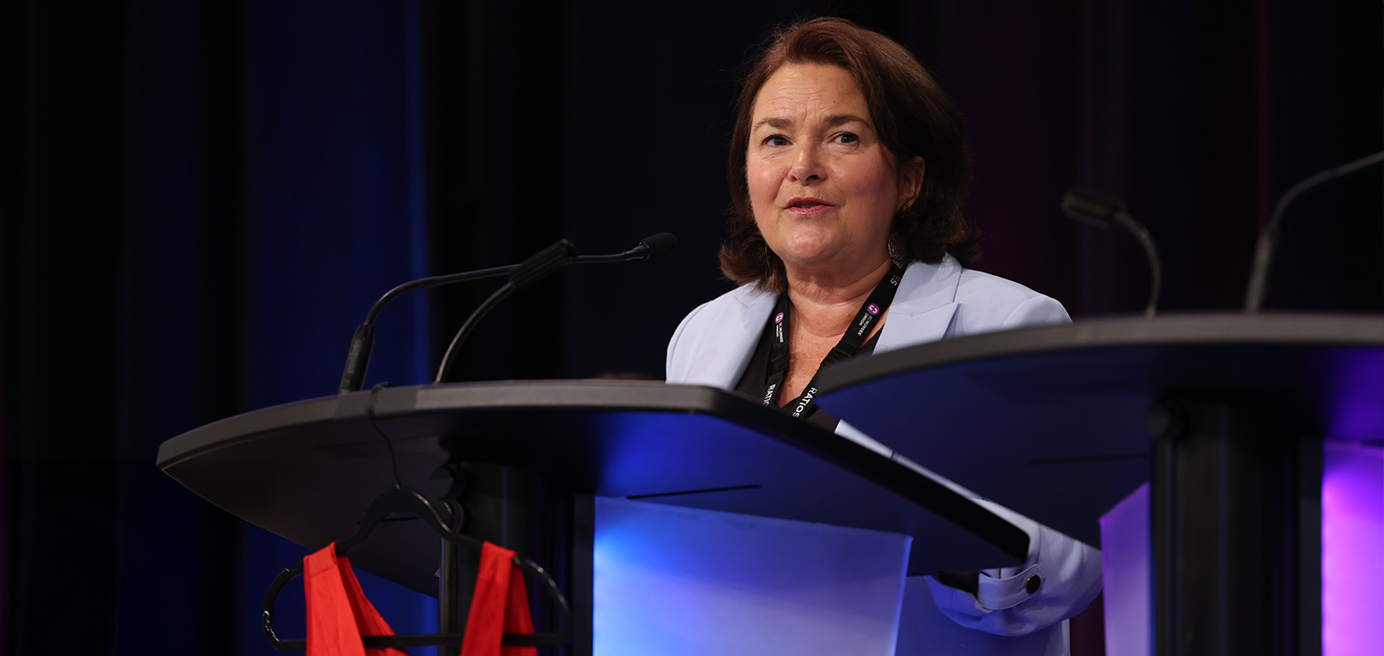 Canadian Federation of Nurses Union Presentation: “You are Canada’s Nurses.”
Canadian Federation of Nurses Union Presentation: “You are Canada’s Nurses.”

BCNU’s second day of convention kicked off with an inspiring address from Canadian Federation of Nurses’ Union president Linda Silas, who reflected on a year of challenge, action, and growing solidarity among nurses across the country. Her message to the BCNU delegation was clear: the power of our movement is not in one person – it’s in all of us.
Silas started by celebrating significant milestones, including CFNU’s role in organizing the first-ever international summit on minimum nurse-to-patient ratios in Ottawa. The historic event brought together national and international nursing leaders, unions, health employers and government officials to strategize on implementing safe staffing across the country. Silas also applauded BCNU President Adriane Gear’s recent invitation to present to the Royal College of Nurses in Liverpool, UK – a proud moment of international recognition for Canadian nursing advocacy.
Her report highlighted CFNU’s national advocacy efforts during the federal election, which included putting pressure on federal leaders for a patients’ bill of rights – a legal tool to address unsafe health-care working conditions and enforce the core principles of the Canada Health Act, ensuring everyone has access to the care they need – when they need it – through our public health system. She also mentioned CFNU’s ongoing push for a national pharmacare plan and a national health human resources plan to enhance the retention and recruitment of nurses within Canada.
Silas highlighted CFNU’s role as a research leader, citing recent reports on the barriers experienced by internationally educated nurses, a national survey on the challenges facing nursing students, and a comprehensive examination into anti-Indigenous specific racism in nursing. Nurses also organized policy breakfast meetings with health ministers and premiers in Halifax last summer. Silas updated the delegation on the agenda of CFNU’s biennial convention taking place next week in Ontario. Items include the sharing of an official apology to Indigenous, Métis and Inuit peoples for the racism and discrimination they have faced when seeking care and a critical debate on the war on Gaza.
Her report included a powerful message that nurses must start saying “no” to unsafe conditions and burnout and focus on building a future rooted in empowerment and solidarity. She stressed the importance of unity, pointing to key moments in labour history such as Manitoba’s 31-day strike in 1990 and BC’s overtime ban in 2001 as examples of the progress that is possible when nurses stand together.
Silas closed with a call to action to build a nursing movement across Canada.
“From Kamloops to Charlottetown, we need a grassroots nursing movement that connects every nurse in every corner of the country,” she said. “We need to work together, and we need to make sure our message is loud. You are Canada’s nurses.”

